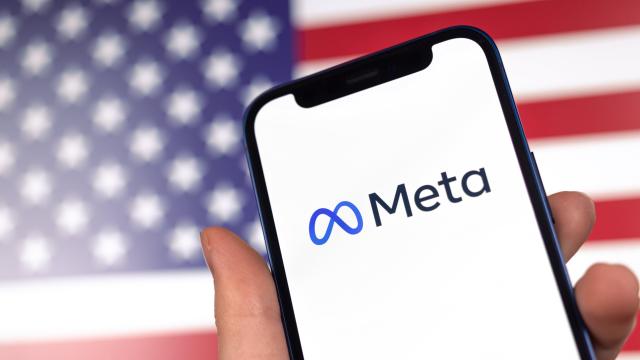Meta wants to create its own digital landscape called “the metaverse,” and the company reportedly no longer has the patience or funding for the U.S.’ political struggles. Two separate reports claim the company is no longer putting its money toward derailing election misinformation and the U.S. 250th anniversary.
Instead, the company has a vision for its own digital nation: One metaverse, under “God,” yet still very much divisible, because how else will you make money?
The Wall Street Journal first reported Wednesday that Meta had bowed out of its support for the commemoration of the U.S.’ 250th birthday, pulling a promised $US8 ($11) million of its total $US10 ($14) million deal the company promised back in 2021.
It’s not hard to understand why the company has backed away. The mouthful-titled Semiquincentennial Commission had apparently promised the company there would be multiple big-money sponsors, yet Meta was the only corporation to put their name on the America250 Foundation’s plans.
Meta did not immediately return Gizmodo’s request for comment on the move, but a spokesperson did confirm with the Journal they were “no longer a corporate sponsor” for the commission as of Tuesday.but
According to an unnamed source quoted by the Journal, Meta was concerned with large-scale “dysfunction” amongst the commission’s leadership. The Journal previously reported that Meta had promised $US10 ($14) million over five years. If the company was expecting more partners, it might have shot itself in the foot as it originally put down $US2 ($3) million to be the project’s only “social connectivity” partner, according to the report.
The foundation originally set a fundraising goal of $US250 ($347) million when it was supposed to host its celebrations in 2026, yet the team’s leadership has been mired in controversy, something apparently noted by Meta. Some members reportedly criticised the commission for taking Facebook’s money without enough discussion. A lawsuit from a since-resigned commission member alleged the foundation was “run by a cabal.”
Four unnamed internal sources told the New York Times that the company had gone from 300 people working full time on election issues to 60. Some workers are apparently splitting their time on election issues with other projects.
The report claims that in 2020, CEO Mark Zuckerberg made the 2020 election a priority, and that he met with an election team of 300 people across the company to prevent misinformation. The unnamed sources told the Times another executive other than Zuckerberg now meets with the team instead, and the CEO has not had any conversations with civil rights groups like the company was doing before 2020.
Meta spokesperson Tom Reynolds told Gizmodo “the claim in the New York Times is wrong, as we have hundreds of people across more than 40 teams focused on this work.” The spokesperson told the Times they were still “building teams” to tackle election misinformation.
But congress doesn’t seem to be buying the idea the company has made a big enough effort. The leaked Facebook Papers showed many employees thought the company was effectively “fuelling the fire” of the Jan. 6, 2020 insurrection because of the company’s failure to contain misinformation.
Though Facebook banned former President Donald Trump’s account after the insurrection, the Jan. 6 Committee hearings included talk of how both Trump and his supporters attacked members of congress, either through cases of doxxing or outright threats on the platform.
And the social media threats apparently haven’t ended. Based on an analysis by nonprofit group Advance Democracy, CNN reports that calls for violence against the Jan. 6 Committee members are rolling through far-right social media platforms like Truth Social or on internet cesspit boards like 4chan.
The Times said its own analysis shows election misinformation is still rampant on major social media platforms. The election misinformation bonanza film 2000 Mules was shared widely on Meta-owned Facebook and Instagram, garnering 430,000 reactions.
So as Meta refocuses on ‘the metaverse,’ the company’s social platforms are in the process of being remade in ways that could have dire implications for its efforts to curb misinformation. The plan is to make Facebook and Instagram more like TikTok with a focus on algorithm-based feeds of short-form video based on preferences.
